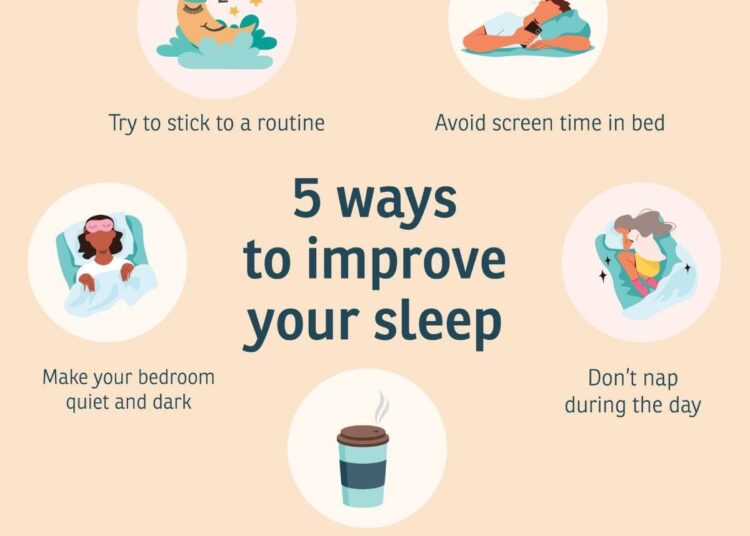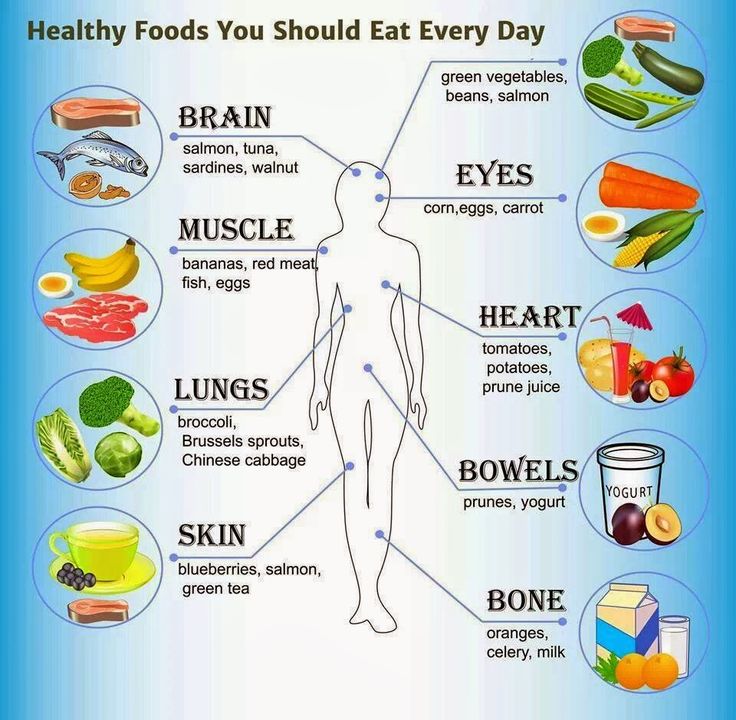Exploring the connection between sleep and wellness, this article dives into why rest is becoming the ultimate productivity tool. From the impact of quality sleep on overall well-being to tips for optimizing rest, this piece offers a comprehensive look at how prioritizing sleep can lead to increased productivity and improved health.
Importance of Sleep for Wellness
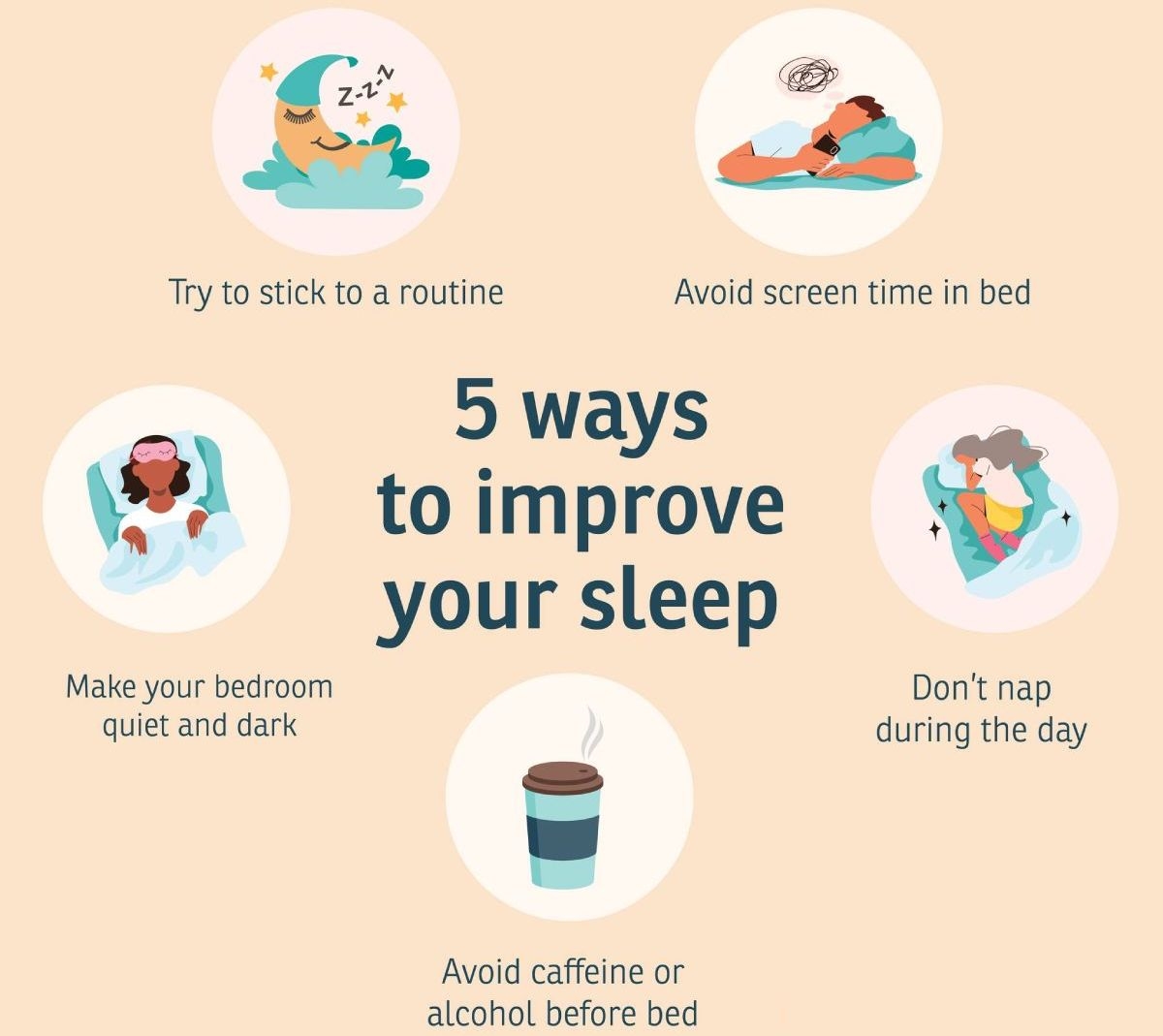
Quality sleep plays a crucial role in maintaining overall wellness. When we consistently get adequate rest, it positively impacts both our physical and mental health, leading to improved productivity and overall well-being.
Physical Health Benefits of Quality Sleep
- Enhanced immune function, reducing the risk of illnesses and infections.
- Regulation of hormones responsible for appetite and metabolism, aiding in weight management.
- Promotion of cardiovascular health by lowering the risk of heart disease and stroke.
- Improved athletic performance and faster muscle recovery.
Mental Health Benefits of Quality Sleep
- Enhanced cognitive function, memory retention, and better decision-making abilities.
- Reduced risk of mood disorders such as anxiety and depression.
- Improved stress management and overall mental well-being.
- Increased creativity and problem-solving skills.
Research Findings on Sleep, Productivity, and Well-Being
Research has shown that individuals who consistently get quality sleep are more productive, focused, and have a lower risk of burnout compared to those who are sleep-deprived.
- Adequate rest improves concentration, creativity, and overall cognitive function.
- Quality sleep is linked to better emotional regulation and mental resilience.
- Poor sleep quality has been associated with decreased job performance and increased absenteeism.
Sleep Hygiene Practices
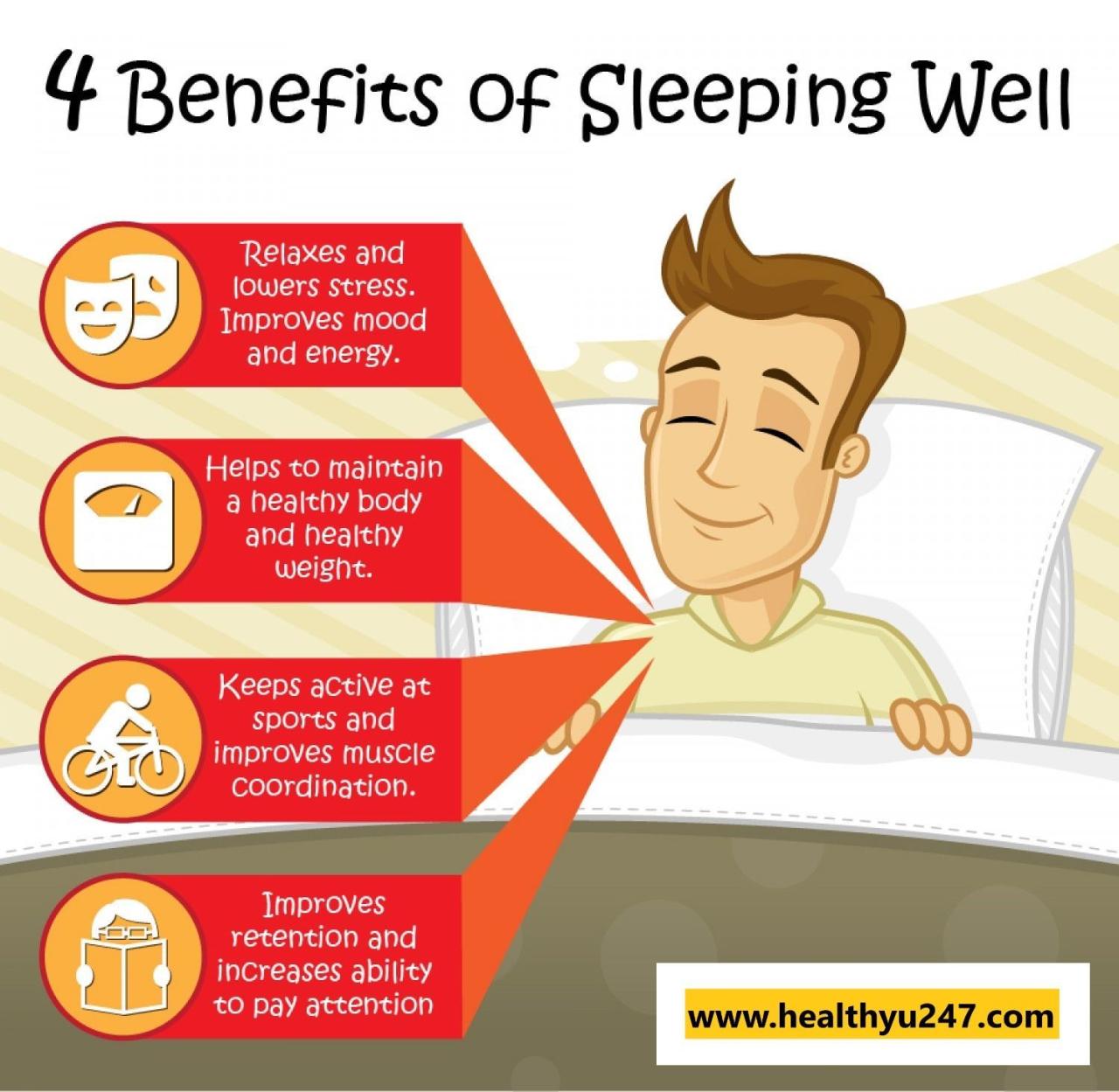
Maintaining good sleep hygiene practices is essential for better rest and overall well-being. By incorporating healthy habits into your bedtime routine, you can create a conducive sleep environment that promotes a restful night’s sleep.
Create a Comfortable Sleep Environment
- Avoid exposure to screens before bedtime, as the blue light can interfere with your body’s natural sleep-wake cycle.
- Keep your bedroom cool, dark, and quiet to create an optimal sleep environment.
- Invest in a comfortable mattress and pillows that support good sleep posture.
Establish a Consistent Bedtime Routine
- Go to bed and wake up at the same time every day, even on weekends, to regulate your body’s internal clock.
- Engage in relaxing activities before bedtime, such as reading or taking a warm bath, to signal to your body that it’s time to wind down.
Practice Relaxation Techniques
- Try deep breathing exercises or meditation to calm your mind and body before sleep.
- Avoid consuming caffeine, nicotine, or heavy meals close to bedtime, as they can disrupt your sleep.
Sleep and Productivity
Sufficient sleep plays a crucial role in enhancing productivity levels. Quality sleep is directly linked to cognitive function, impacting our ability to focus, make decisions, and solve problems efficiently. Optimizing sleep is essential to maximize productivity in both professional and personal aspects of life.
Relationship between Quality Sleep and Cognitive Function
Quality sleep is essential for optimal cognitive function. During sleep, the brain consolidates memories, processes information, and restores energy levels. Adequate rest allows for improved concentration, creativity, and problem-solving skills.
- Ensure 7-9 hours of quality sleep each night to support cognitive function.
- Avoid electronic devices before bedtime to promote better sleep quality.
- Establish a consistent sleep schedule to regulate the body’s internal clock.
Wellness Benefits of Power Naps
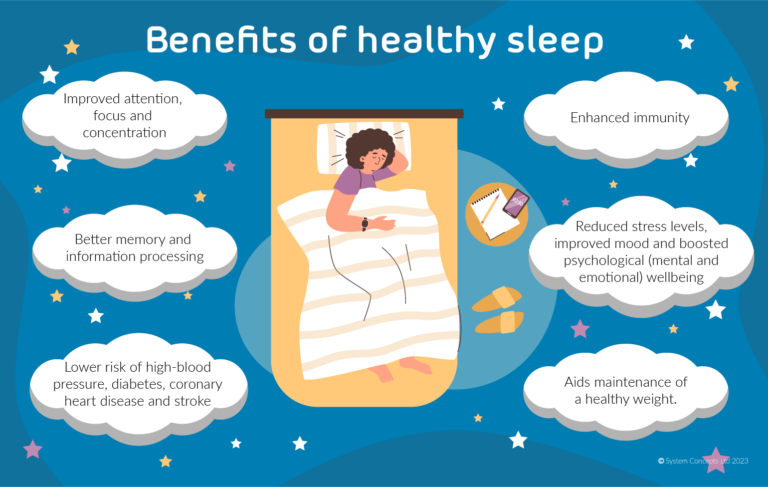
Power naps are short periods of sleep that can have numerous benefits for overall well-being. These short bursts of rest can help improve cognitive function, boost mood, and enhance productivity throughout the day.
Optimal Durations and Timings
- Optimal duration for a power nap is around 10 to 20 minutes to avoid entering deep sleep stages, which can lead to grogginess.
- The best time for a power nap is in the early afternoon, around 1 to 3 PM, when the body’s natural circadian rhythm tends to dip, making you feel drowsy.
- Avoid taking power naps too close to bedtime as they can interfere with nighttime sleep patterns.
Improved Focus and Alertness
Power naps can significantly improve focus and alertness, making you more attentive and sharp for the rest of the day. By allowing your brain to rest and recharge, power naps can enhance cognitive performance, memory retention, and decision-making skills. Incorporating power naps into your daily routine can help combat fatigue and increase overall wellness.
Final Wrap-Up
In conclusion, the benefits of quality sleep on productivity and wellness cannot be overstated. By understanding the importance of rest and implementing effective sleep hygiene practices, individuals can unlock their full potential and achieve optimal performance in all aspects of life.
FAQ Summary
How does quality sleep impact overall wellness?
Quality sleep plays a vital role in physical and mental health, contributing to improved mood, cognitive function, and immune system.
What are some effective sleep hygiene practices?
Effective sleep hygiene practices include maintaining a consistent sleep schedule, creating a comfortable sleep environment, and avoiding stimulants before bedtime.
Can power naps enhance productivity?
Yes, power naps can boost alertness, focus, and cognitive function, leading to improved productivity and overall well-being.

